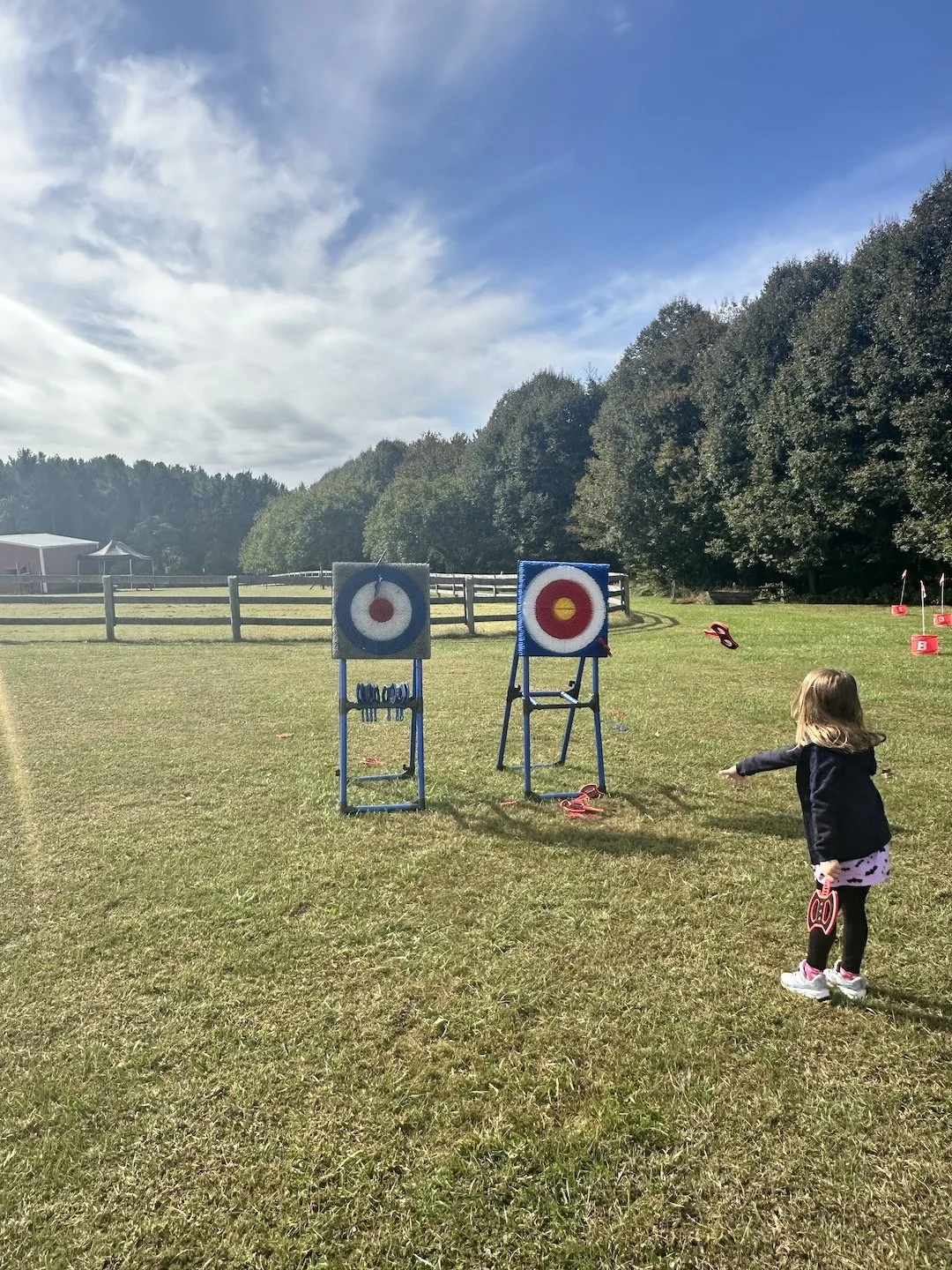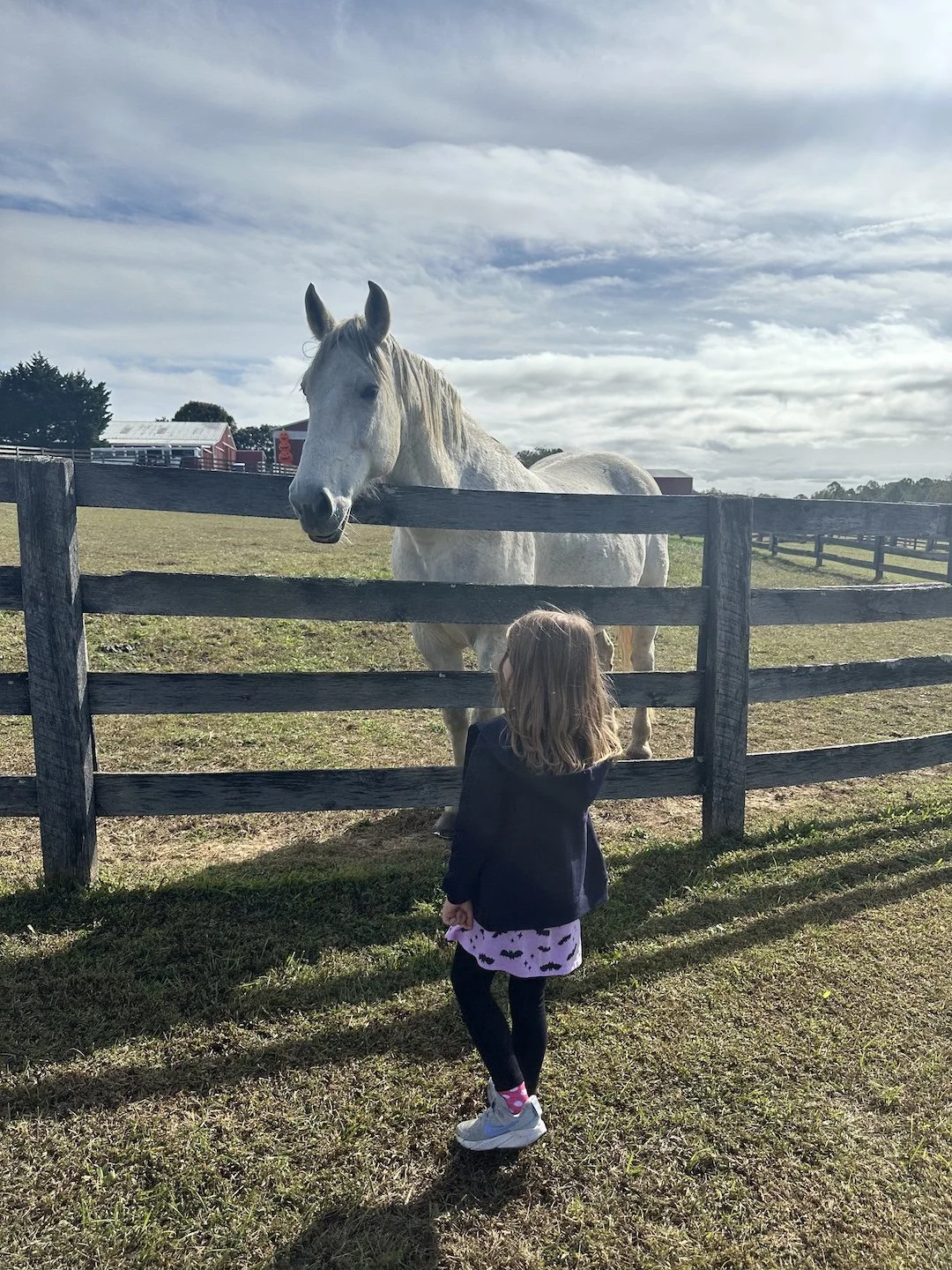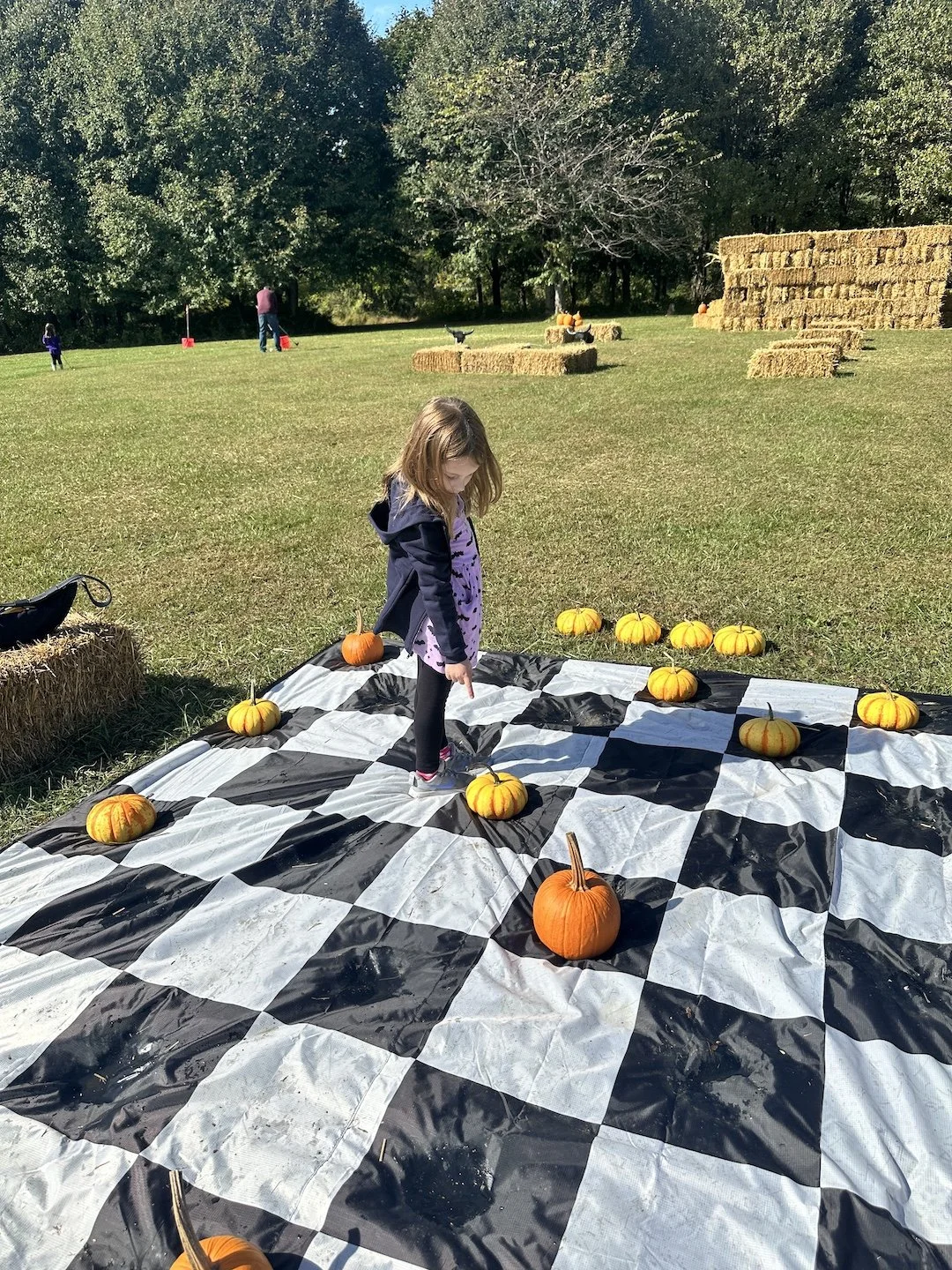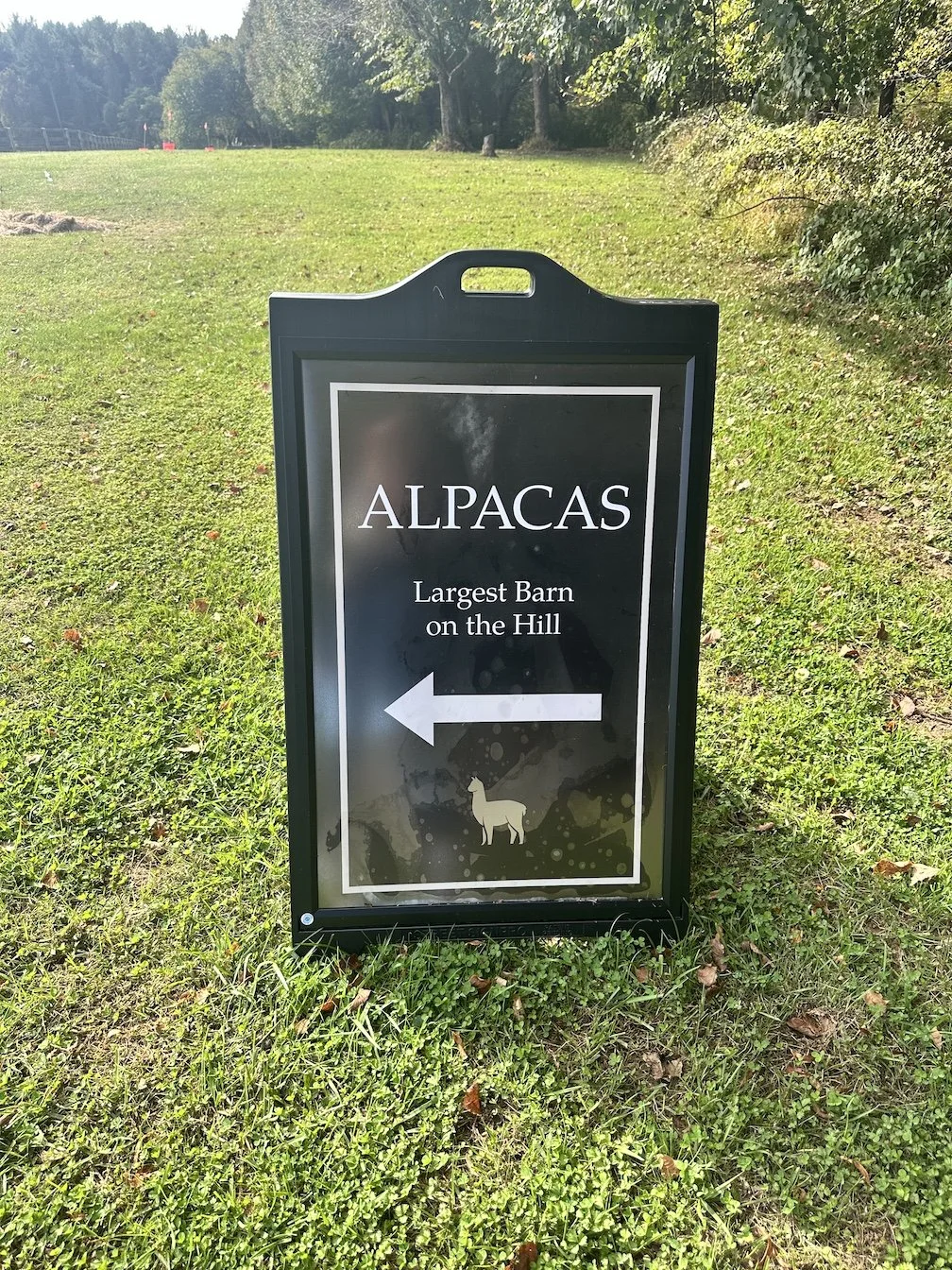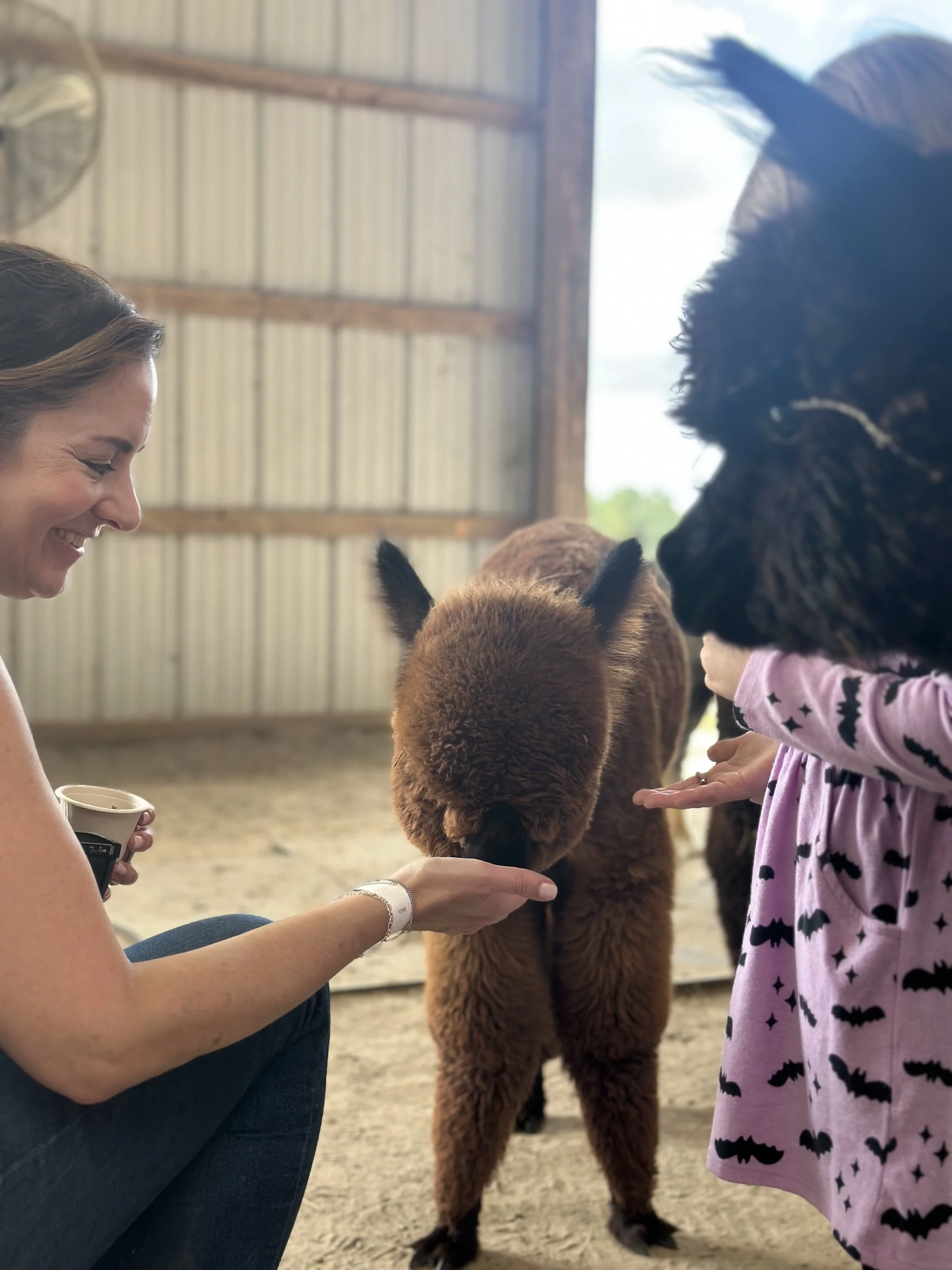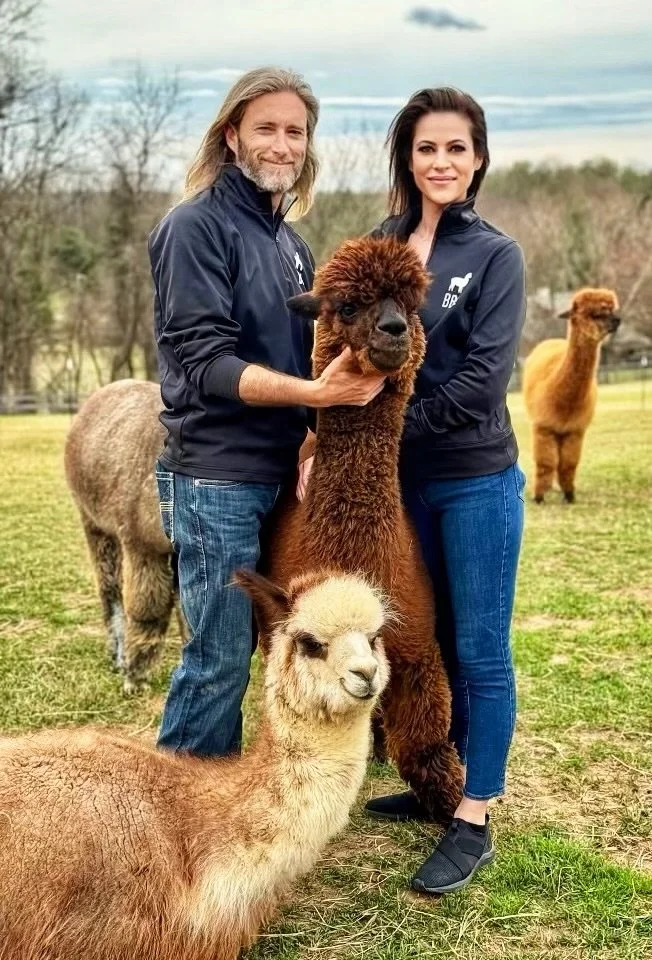Where the Air Is Crisp and the Alpacas Roam: A Maryland Fall Retreat
There’s something about fall that calls for a good road trip—pumpkin patches, wineries, winding backroads, and wide-open fields that make you wonder what life might be like on a farm. So when I was invited to visit Black Barn Alpacas, Maryland’s largest alpaca farm, I grabbed my daughter, hit the road from Alexandria, and arrived to rolling hills, crisp air, and a few curious alpacas watching from the fence line.
Once we’d conquered the farm games—lassoing, rubber darts, and a competitive match of pumpkin checkers (my daughter claimed victory, of course)—and braved the hillside slide, it was time to meet the real stars of the day: the alpacas.
We met Yussy El-Hibri, the farm’s co-founder, who, along with her husband Travis, has built an agri-tourism experience rooted in sustainability, heart, and family. What began as a pandemic pivot has grown into a 50-acre working farm home to more than 150 alpacas and endless inspiration. I had so many questions.
Q: What inspired you to start an alpaca farm, and how did your journey as a founder begin?
Yussy: Black Barn Alpacas was truly a pandemic baby. My husband and I were wrapping up a construction business in Texas, thinking about what came next, and found ourselves pulled back toward our agricultural roots. We wanted to build something sustainable—something that reflected who we were and what we valued. When we discovered alpacas, it just clicked. They’re kind, gentle, incredibly sustainable animals that give more than they take from the land. Once we visited a few farms and met them up close, we were hooked.
We started with 20 alpacas and a loose plan. Fast-forward a few years, and we’ve grown to over 150 on 50 acres here in Maryland. Moving from Texas was a big decision, but the heat there wasn’t ideal for the alpacas. The cooler Maryland climate allows them to thrive, and it’s also home for me. It felt like everything aligned perfectly.
Agriculture and farming are still male-dominated spaces. What has your experience been like leading as a woman in this field?
Yussy: It’s been both humbling and empowering. I’ve learned that leadership doesn’t have to look one way. My approach is rooted in compassion, community, and education. I don’t try to fit into a traditional model of farming or business ownership. Instead, I try to bring a nurturing energy, one that values connection just as much as production.
That’s what makes our farm experience so unique. I want people to feel something when they come here, to sense that warmth, that care in every detail. Running a farm as a woman means embracing the balance between strength and softness, between structure and intuition. And honestly, I think that balance is what’s helped us grow the way we have.
The Fall “Ag’tivities” are incredible. What makes this event so special compared to a typical pumpkin patch?
Yussy: Fall is our favorite time of year—it’s when the farm really comes alive. Every Friday through Sunday in October, we host our “Ag’tivities,” where families can meet the alpacas, take hayrides, play games like pumpkin checkers or pumpkin bowling, and enjoy our pumpkin patch. It’s a joyful, hands-on experience designed to connect people with the land and the animals.
What sets us apart is that it’s not just entertainment, it’s an experience grounded in education and authenticity. Guests learn about alpaca care, sustainability, and how we use their fleece to make eco-friendly products. It’s something people of all ages can enjoy, and the alpacas’ gentle personalities add this calming, almost magical energy to it all.
Sustainability is clearly at the heart of what you do. How do you bring that to life at the farm?
Yussy: Everything we do starts with the alpacas’ well-being and the health of the land. Each alpaca receives individualized care: proper nutrition, regular checkups, professional shearing, and even nail clipping. Shearing, for instance, isn’t just about fleece, it’s essential to their comfort and health.
We use every fleece responsibly, turning it into high-quality, hypoallergenic, sustainable products that support ethical farming. We also use alpaca manure as natural fertilizer for our hay fields, which come full circle to feed the herd. And when we can, we reuse or repurpose materials on the property—wood, pallets, anything with life left in it. Sustainability isn’t a side project here; it’s part of our daily rhythm.
What do you hope visitors take away from a day at Black Barn Alpacas?
Yussy: I hope they leave feeling more grounded and connected. There’s something about being surrounded by these animals, their calm, curious nature, that shifts your energy. Families slow down, kids explore, and everyone seems to take a deeper breath.
We’ve had visitors tell us they didn’t realize how much they needed this kind of peace until they experienced it. That’s the most rewarding part for me. It’s not just about alpacas or agri-tourism; it’s about creating a space where people can reconnect with nature, with each other, and with themselves.
SEE ALSO: What We’re Loving: Wineries Within Driving Distance


